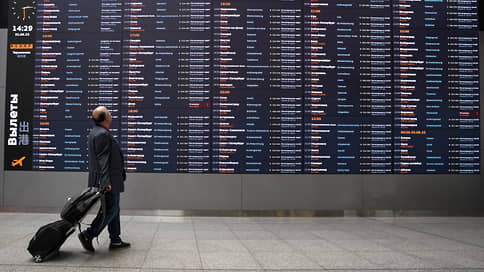“Electronic voucher” left for revision – Kommersant
[ad_1]

Before a new attempt to fully implement the “Electronic Voucher” (an analogue of the Unified State Automated Information System for the tourism market), Prime Group, associated with the structures of Rosatom, joined its refinement. In the competition, the company bypassed the structure of Rostec, which was still involved in the development of the project. Despite attempts to refine the system, tour operators remain skeptical, pointing to a reluctance to communicate product pricing information.
The Ministry of Economy signed a contract with Prime Group LLC for the development of the Electronic Voucher GIS, found “Kommersant” in the federal register of contracts. The cost of the contract is 47.1 million rubles, the deadline for its execution is December 20 of this year. The application of National Tourism Technologies JSC (NTT), which was originally supposed to be engaged in the technical operation of the GIS, was rejected. The company explained to Kommersant that these functions remain behind it. The Prime Group did not answer Kommersant’s questions.
According to Kartoteka.ru, 49% in Prime Group belongs to Rosatom-controlled JSC Atomdata-integration, 17% each belongs to Alexander Bogdyl, Sergey Ryzhkov and David Faradzhev. According to the terms of reference of the Ministry of Economy, the main tasks of this company within the framework of the state contract are to correct the composition of the fields in the “Electronic Voucher” for entering information by tour operators, finalize personal accounts, modernize the generation of QR codes, etc.
“Electronic voucher” must contain all information about the implemented tours, their cost and part of the personal data of tourists. The authorities thought about its creation in 2012, after the collapse of Lanta Tour. Technically, the main stage of development took place in 2014–2015. At the same time, the GIS was planned to be launched, but the deadlines were constantly shifted. Initially, the system was developed by the Asteros group, but since 2017, KRET JSC, which is part of Rostec, has been developing the Electronic Voucher (see Kommersant dated July 18, 2017). NTT is the KRET structure. Last year, it became known about the plans of the authorities to choose a new operator for the GIS (see Kommersant dated September 14, 2022).
Formally, the “Electronic Voucher” was launched a year ago, but in fact its use is limited. Responsibility for failure to enter data for operators of domestic and inbound tourism should come from September 1, 2024, in the outbound market the transition period expires on September 1 of this year. From now on, tour operators can be excluded from the register in the event of a three-fold violation of the data transfer procedure for three consecutive months, but only on the basis of a complaint from Rospotrebnadzor, says Georgy Mokhov, founder of Persona Grata. Earlier, the authorities discussed the possibility of extending the test period until March next year, but in the end, according to Tourdom, it was decided to give the outbound market participants a delay until November 15. The Ministry of Economy told Kommersant that they supported the proposal of the business to postpone the mandatory use of the “Electronic Voucher” and now the draft legal act is being considered in the Ministry of Justice.
Vice-President of the Russian Union of Travel Industry Dmitry Gorin calls the deadline less realistic, fearing that small players will not have time to adapt. Now the use of the “Electronic Voucher” is free for business, but, according to a Kommersant source on the market, tour operators will need 2-3 million rubles to connect to the system. The absence of the originally planned fees from each tour made the administration less attractive for its operator: it was initially assumed that it would receive 100 rubles from each of the 25 million tours sold, its turnover would amount to 2.5 billion rubles, the Kommersant’s interlocutor notes.
Now some tour operators are using GIS in test mode. Intourist explained that they are transmitting data on shortcomings to the developer. The main difficulties in the company are associated with the fact that the system does not take into account various forms of pricing in the market. Georgy Mokhov notes that the “Electronic ticket” created eight years ago is already outdated and does not meet many market realities. At the same time, the system initially causes rejection in business, he recalls. Another interlocutor of Kommersant in the tourist market explains that the main claims boil down to the unwillingness of tour operators to disclose the procedure for pricing the product in terms of the size of the commission of agents and other partners.
The development of the “Electronic Voucher” is not the only tourist state contract for Prime Group. The company entered into an agreement for 27 million rubles. to maintain the federal register of tour operators, information systems about threats to the safety of tourists, issue permits for activities related to the use of foreign ships. NTT also participated in this competition. Kommersant’s interlocutor does not exclude that the focus of Rostec’s structures as a whole has shifted in favor of projects not related to tourism.
[ad_2]
Source link





